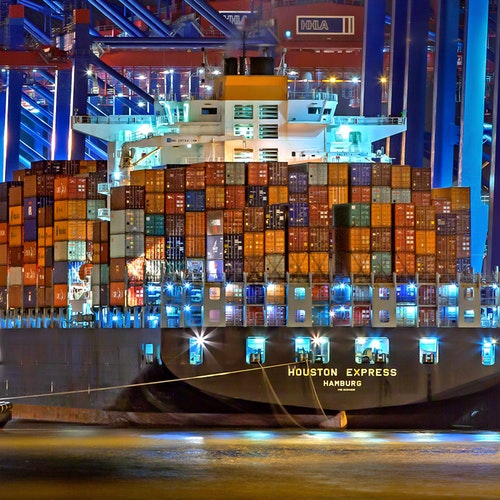INDUSTRY PERSPECTIVE: Creating space for inclusive and transparent global trade
A healthy trade environment requires strong international commitment, writes HE Hamad Buamim, chairman of the ICC – World Chambers Federation and president and CEO of Dubai Chamber of Commerce and Industry, as he calls on the G7 to improve access to trade networks and support global trade expansion
As the G7 leaders gather in Biarritz for an agenda focused on fighting inequality and fostering more fair, equitable trade, attention is turning towards international trade practices and the contributions made by players worldwide.
The International Chambers of Commerce and the World Chambers Federation champion fair globalisation that drives prosperity for all. Small and medium-sized enterprises are the backbone of the world economy, accounting for 95% of all enterprises globally and representing around 60% of private-sector jobs.
Placing SMEs at the centre of growth programmes is critical to achieve sustainable growth and economic diversification. This in turn improves a country’s export basket and its long-term competitiveness.
SMEs play a vital role in driving trade: around 80% of global trade occurs in worldwide value chains coordinated by multinational companies, but close to half of the added value within these chains is contributed by local SME suppliers.
Trade finance remains one of the most important facilitators of international trade, and this is especially true for SMEs, which rely on access to banking services in order to export and import. Trade finance allows companies to mitigate the risks associated with importing or exporting goods and services, facilitating trade flows in a seamless, transparent and secure manner.
Technology is improving the trade finance landscape. The 2018 ICC Global Survey shows that more than 60% of banks surveyed have implemented or are in the process of implementing technology solutions to digitalise their trade finance operations. To take this further, industry players and trade organisations must do more to agree on common standards so that all the benefits of trade digitalisation can be realised.
To support SMEs, the ICC-WCF is raising awareness and promoting education on best international trade practices, the benefits of trade finance, online training, support through regional chambers and producing guides to support the contribution of SMEs to global trade. The ICC-WCF also regularly uses its data to develop concrete policy recommendations to stimulate trade finance alongside international organisations and other public- and private-sector partners.
Trade for private-sector development
Developing countries are also key to promoting strong trade. Emerging economies are the ones to watch, as they are reshaping global connectedness and are most involved in current international trade interactions. Work is under way to better engage these countries in bilateral and multilateral trade arrangements – for example, by promoting the efficient use of technology in developing countries to streamline exports and imports. Technology is central to reducing time and costs associated with trading.
In particular, we are promoting the use of 4IR technologies, which include artificial intelligence, augmented reality, robotic process automation, analytics and the internet of things.
Emerging markets will soon dominate the world trading system, with their share of trade rising from less than one-third today to nearly 70% by 2050. Trade among emerging economies will also increase, therefore making it imperative to involve developing countries in sustainable trade practices.
The work of the ICC-WCF
As chair of the ICC-WCF, I have launched an ambitious plan to remove existing barriers to global trade, strengthen the role of the ICC-WCF as a facilitator of global commerce, develop smart and innovative solutions and services for businesses, and adopt a future-ready framework that will enhance the competitiveness of chambers and their members worldwide.
The plan works towards a more open and inclusive system of international trade and creates a sustainable mechanism that measures and assesses the needs, aspirations and challenges of businesses globally.
We should not forget, however, the importance of channelling our cooperation in a way that supports progress towards the Sustainable Development Goals set by the United Nations General Assembly. Chambers and businesses have a crucial role to play in implementing these goals, solving pressing global challenges and creating far-reaching benefits.
By working together, sharing knowledge and utilising our combined expertise, I believe that we as chambers of commerce can achieve common goals, move the chambers community forward, and pave the way for sustainable global growth.
Such work includes tackling trade imbalances, which we are doing by supporting World Trade Organization reform, promoting multilateralism and free trade, supporting SMEs and sustainable development and undertaking campaigns, such as the Global Trade Dialogue Initiative and the #tradematters campaign.
Over the coming year, we can expect some global trade challenges – the WTO and International Monetary Fund, for example, have lowered their projections for 2019 due to trade tensions. However, there are also opportunities. To reap the benefits, we must work collectively to develop new, innovative solutions to such challenges and create a more inclusive and transparent system of global trade.
There exist significant opportunities in emerging economies, which will account for more than 60% of the world’s economic growth in the next decade – representing $15.5 trillion. More trade opportunities will also emerge thanks to multilateral trade agreements, such as CPTPP, and initiatives such as the Belt and Road Initiative, which create cross-border trade and investment opportunities through infrastructure projects.
Greater export opportunities
Trade finance can create more export opportunities, especially for SMEs, and technology can be applied to a greater degree to make trade easier, simpler and more transparent.
The future of trade looks bright, provided there is international support underpinning it. I therefore call on the G7 to support global trade expansion, make international trade networks more accessible for SMEs, and create space for emerging markets to reach their full potential – to the benefit of all.












